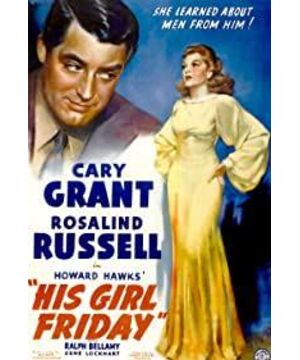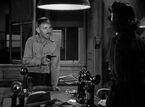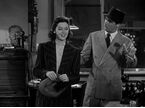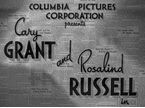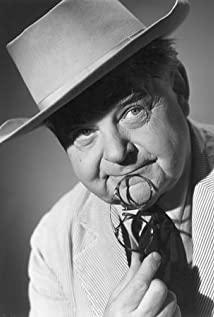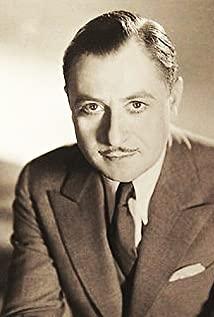Secondly, I was surprised that I actually scored five stars. Obviously it was not my favorite type and style. However, this film appeared in the early 1940s, which is of great significance. On the one hand, the film strictly abides by the narrative norms of classical Hollywood, and every technique is packed in a normative package, which is completely exemplary. On the other hand, there are a lot of ingenuity in the composition and framing of the film, and I see the shadow of some later movies. Appearing at this time, it happened to be the summary of the "tradition" in the 1930s and the opening of the "modern" in the 1940s. The significance of [Citizen Kane] in the field of film narration in 1941 is self-evident. At the same time, there are also depth-of-field shots that are talked about, but all of this did not come out of thin air. [Little Fox] was also in 1941. [Girlfriend Friday] It was 1940. Before the genius, there were always some "craftsmen" like Hawkes and Wheeler doing "artisan" exploration.
Okay, it's officially started.
1. A model of classical narrative
1. The
original goal of the play A in the strict sense-the obstacle-the solution must be a complete solution to Gary Grant's desire to rebuild the old good, learned that his ex-wife will get married tomorrow, set up obstacles, hinder getting on the train, and finally succeed
B The two-line model romance/business (work/society) is the heart of winning back the ex-wife/murderer Williams’ jailbreak report incident in this film. The two lines influence each other so that they are all resolved at the end of the film.
C. The deadline must be clear. The time limit must be on the train tonight/Williams will be executed tonight
2. Lens setting
A Strict 180 degree axis principle stage-style scene scheduling scene single
B omniscience narrative avoid subjective shots are all based on display
C Scenery is based on all Close mode switching, especially American lenses, are more fixed.
D Editing is completely consistent with the person’s line of sight or action.
E The female protagonist’s close-up is too close to the contrast between the soft light and the surroundings.
F Avoid front
2. Borrowing
the genre model This time the quirk comedy has become more mature. On the basis of telling the story well, the film borrows genre experience to strengthen the style.
1. Super-intensive and fast-spoken dialogue
(a manifestation of the value of the screenwriter)
2. Gender conflicts
(arousing the experience of deja vu, the creation of a sense of comedy)
3. The development of "modern" language
1. Speaking less positively in dialogue anti-fight
on the one hand may be too close dialogue bad switches, but lens with a long shot when the film Hawkes shooting scene reporter room, or at most for a flight scene continued long shot, so everyone you made I spoke in one word. Later, when the hero and heroine were alone, they still placed the two people in the frame together, which enriched the scene scheduling in a more complete sense of pros and cons.
2. The composition uses the "super full" mode
to fill the picture with characters. If there is a gap, someone will fill it up immediately. The composition tends to be balanced but it is really full. Some characters in the picture are on the edge or even cut. In the scene, the characters enter the painting one by one to fill in the blanks, accompanied by the dense dialogue (sweat). What is surprising is the director's ability to schedule the actors out of the painting and maintain the balance of the composition.
3.
Although the depth of field is not so obvious, it is noticeable enough. In this film, especially in the group play of a group of reporters in the press room, Hawkes pays attention to arranging the front, middle and back scenes of the picture, and there are always people in the foreground. The back and the like, and the characters at every level can speak and have a role. Sometimes there are various people walking around in the background, but sometimes it is processed by shifting the focus.
4. Move horizontally to
open the scene and explain the environment of the newspaper office by moving horizontally, and then jump to the outdoor scene for similar scheduling.
It's over.
Having said so much, I actually want to say that [Citizen Kane] didn't come out of thin air. The development of history has its own pace and law, and a narrative mode has also improved over time, but sometimes genius plays a catalytic role, if there is no such person as Orson Wells, [Citizen Kane ] It’s many, many years late, but it’s too late, and it’s still there.
View more about His Girl Friday reviews


